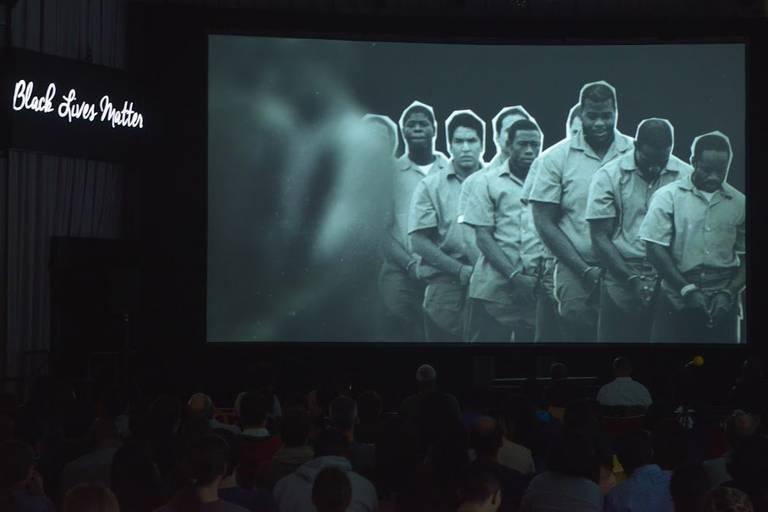
The U.S. has the highest incarceration rate in the world. Although African Americans are only 13 percent of the U.S. population, they make up 40 percent of America's prisoners. African American men are incarcerated at over five times the rate of white men.
Google believes it can help be part of the solution. The company plans to invest $11.5 million in grants to American organizations working to reform the criminal justice system. “Mass incarceration is a huge issue in the United States, and a major area of focus for our grants,” Justin Steele, principal of Google.org, Google's charitable arm, wrote in a blog post.
Google.org will give $5 million to the Center for Policing Equity’s (CPE) National Justice Database (NJD), the first database in the nation to track and standardize police stops, use of force and other police interaction data from law enforcement agencies. The grant will be spread over three years and will allow CPE to incorporate resident surveys that directly link police behavior to the community perceptions of police, expand the NJD to more cities, and reduce reporting times back to police departments once data analysis is complete. Google will help CPE automate the process it uses to extract data from participating police departments.
The NJD began in 2012. Police departments responsible for over half of the country’s major cities and representing over a third of the U.S. by population have made commitments to participate.
“Google’s deep investment will help us think bigger and bolder about how to make policing more democratic and more American,” CPE president and co-founder, Dr. Phillip Atiba Goff, said in a statement.Google is also supporting two California-based organizations that focus on ways data can help bring more equity in U.S. court systems.“It’s nothing short of a financial miracle in terms of what it allows us to do evidence to reduce racial disparities in the criminal justice system,” added Justin Steele of Google.org.
It granted $1.5 million to Measures for Justice, which is working to create a Web platform that allows anyone to see how their local system treats people based on ethnicity, sex, indigent status, age and offense history. Google granted the W. Haywood Burns Institute $500,000 to ensure this data are accessible to criminal justice reform organizations across all of California’s 58 counties .
Google also granted:
- $1 million for Impact Justice’s national Restorative Justice Project, which aims to keep 1,900 youth out of the juvenile justice system.
- $650,000 to support JustLeadershipUSA, which works to train a national network of formerly incarcerated leaders across the U.S. to lead criminal justice reforms.
Google has committed over $5 million to organizations advancing racial justice since 2015. Two years ago, the company granted $2.35 million to support leaders, including #BlackLivesMatter co-founder Patrisse Cullors; Chris Chatmon, who leads Oakland's African American Male Achievement Initiative; and Raj Jayadev, who founded the criminal justice reform organization Silicon Valley De-Bug. Last year, Google gave $3 million in grants to four organizations working to help eliminate racial bias in educational systems: San Francisco’s My Brother and Sister’s Keeper program, Oakland’s Roses in Concrete Community School, the tech-enabled college success startup Beyond 12, and the national Equal Justice Initiative.
Google says it has also done work within its own company to create more equity. The company started to have what it terms an “internal conversation” about unconscious bias in 2013 when 65 percent of its employees participated in workshops. The company shared its “unbiasing” materials and research on re:Work with Google to allow other companies to create unbiasing trainings.
Image credit: Google

Gina-Marie is a freelance writer and journalist armed with a degree in journalism, and a passion for social justice, including the environment and sustainability. She writes for various websites, and has made the 75+ Environmentalists to Follow list by Mashable.com.














